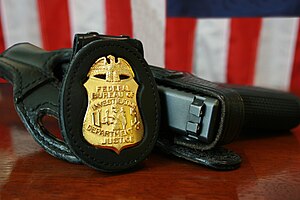 I am a proponent of product placement - the 'placement' of 'product' into popular entertainment - movies and television shows mostly. To have characters use real products in the programs can make it more realistic (no one drinks a 'cola' beverage) is less disruptive to the viewer, and is arguably an effective marketing tool.
I am a proponent of product placement - the 'placement' of 'product' into popular entertainment - movies and television shows mostly. To have characters use real products in the programs can make it more realistic (no one drinks a 'cola' beverage) is less disruptive to the viewer, and is arguably an effective marketing tool.However, not since the 1950s, when soap operas had housewives offering one another a cup of Folgers, instead of coffee, has product placement been so irritatingly obvious and disruptive. Recently I had to ask myself if Ford so desperate - and show producers so greedy - as to kill the golden goose with far less than subtle product references?
The USA Network basic cable buddy cop show White Collar aired an episode this week that was so overtly pandering as to nearly change my attitude on product placement. It used to be that cop shows would accept a fleet of Fords to chase bad guys. A billboard at the end of the program and a passing glimpse of a logo during a chase scene was all that was required. However, imagine the suspension of belief required to accept this exchange, during a climactic chase scene when a kidnapped FBI agent's life is in danger and a murderer is about to escape:
Good Guy 1, glancing at dashboard as driver (GG2) weaves in and out of midtown traffic: "You have a tree on your dashboard."
Good Guy (Girl) 2: "Yeah, its a hybrid. (ed. note: Really, the FBI in hybrids?) Those leaves tell me how economically I'm driving."
GG1: "Yeah, well, you're dropping a lot of leaves. You sure aren't driving very economically."
Seriously, Jeff Eastin? Racing through traffic after kidnapped FBI agents and a murderer and this is the banal script Ford forces on you? That kind of writing and overt product placement should be a crime. A White Collar crime.
